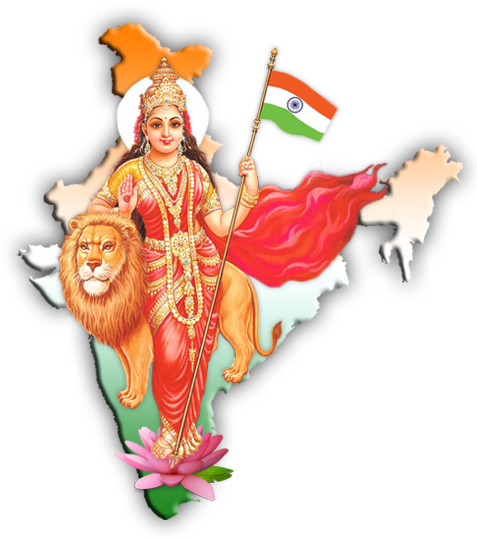Vande Mataram played a historic part in the struggle for Indian freedom !
It shall be honoured equally with Jana Gana Mana and shall have equal status with it. : Dr Rajendra Prasad (24th January 1950)


Vande Mataram is a poem written by Bankim Chandra Chatterjee (See his picture on the right side) in 1870s, which he included in his 1882 Bengali novel Anandamath. The poem was first sung by Rabindranath Tagore in the 1896 session of the Indian National Congress. The first two verses of the song were adopted as the National Song of India in October 1937 by the Congress Working Committee prior to the end of colonial rule in August 1947. Vande Mataram played a vital role in the Indian Independence movement. It became a popular marching song for political activism and Indian freedom movement in 1905. Spiritual Indian nationalist and philosopher Sri Aurobindo referred to it as the ‘National Anthem of Bengal’. The song and the novel containing it was banned by the Colonial Government, but workers and the general public defied the ban (with many being imprisoned repeatedly for singing it in public); with the ban being overturned by the Indian Government after the country gained Independence. On 24th January 1950, the Constituent Assembly of India adopted ‘Vande Mataram’ as the National Song. The first President of India, Dr Rajendra Prasad stated that the Song should be honoured equally with the National Anthem of India, ‘Jana Gana Mana’. However, the Constitution of India does not have any mention of the ‘National Song’. Here is the translation in prose rendered by Sri Aurobindo. This has also been adopted by the Government of India’s National portal. The original Vande Mataram consists of six stanzas, and the translation in prose for the complete poem by Sri Aurobindo appeared in ‘Karmayogin’ of 20th November 1909. |
Mother, I bow to thee !
Rich with thy hurrying streams,
Bright with thy orchard gleams,
Cool with the winds of delight,
Dark fields waving, Mother of might,
Mother free.
Glory of moonlight dreams,
Over thy branches and lordly streams,
Clad in thy blossoming trees,
Mother, giver of ease,
Laughing low and sweet,
Mother, I kiss thy feet,
Speaker sweet and low,
Mother, to thee I bow. [Verse 1]
Who hath said thou art weak in thy lands,
When the swords flash out in seventy million hands,
And seventy million voices roar
Thy dreadful name from shore to shore ?
With many strengths who art mighty and strong,
To thee I call, Mother and Lord !
Thou who savest, arise and save !
To her I cry who ever her foemen drove,
Back from plain and Sea,
And shook herself free. [Verse 2]
Thou art wisdom, thou art law,
Thou art heart, our soul, our breath
Thou art love Divine, the awe
In our hearts that conquers death.
Thine the strength that nerves the arm,
Thine the beauty, thine the charm.
Every image divine.
In our temples is but thine. [Verse 3]
Thou art Goddess Durga, Lady and Queen,
With her hands that strike and her swords of sheen,
Thou art Goddess Kamala (Lakshmi), lotus-throned,
And Goddess Vani (Saraswati), bestower of wisdom,
Pure and perfect without peer,
Mother lend thine ear,
Rich with thy hurrying streams,
Bright with thy orchard gleams,
Dark of hue O candid-fair. [Verse 4]
In thy soul, with jewelled hair
And thy glorious smile Divine,
Loveliest of all earthly lands,
Showering wealth from well-stored hands !
Mother, mother mine!
Mother sweet, I bow to thee,
Mother great and free ! [Verse 5]
The ban imposed by the British on Vande Mataram was overturned by the Indian Government after we gained Independence !